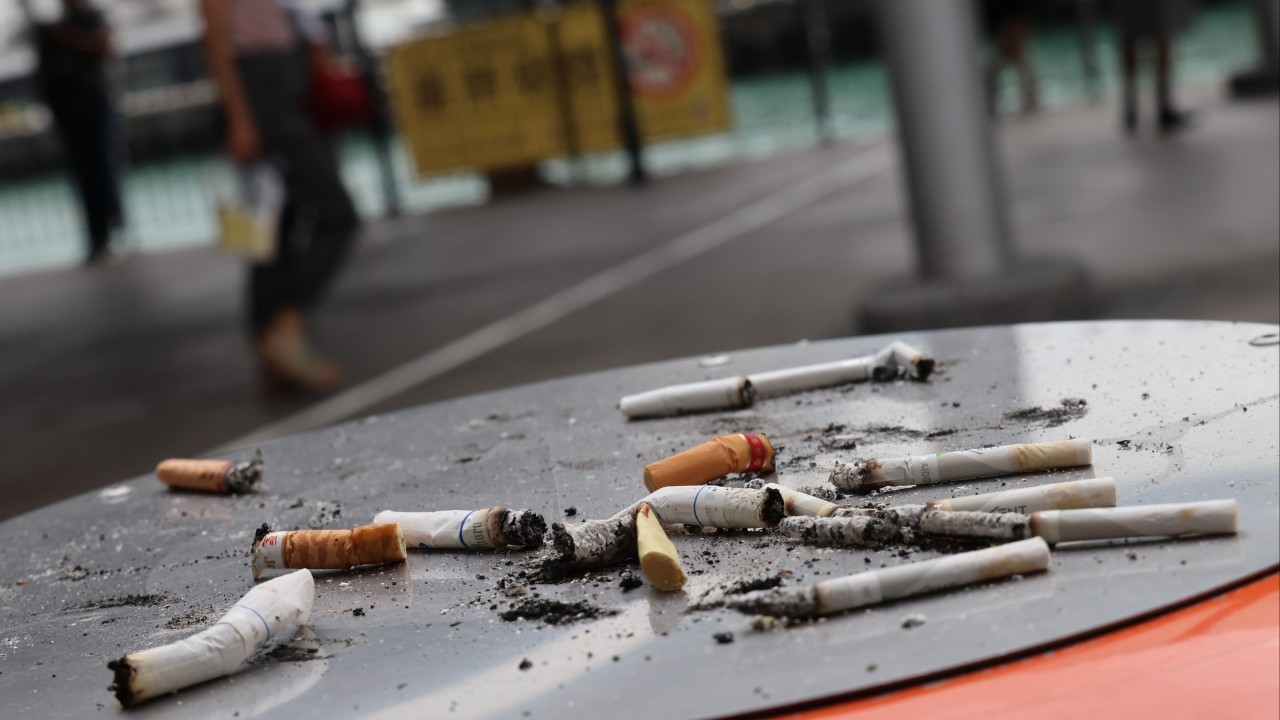
Hong Kong Chief Executive John Lee Ka-chiu, in his maiden policy address in 2022, pledged to lower the rate to 7.8 per cent by 2025.
Men were more likely to be smokers, with the rate among males aged 15 or above at 16.4 per cent in 2023, or about 485,000 people. The rate for women was 2.7 per cent, or 88,000 people.
2. What will be the impact of a ban on flavoured cigarettes?
Health officials said that banning flavoured cigarettes, which they noted were popular among young people and women, would be among the 10 measures.
Ronald Lam Man-kin, the government’s director of health, said the Census and Statistics Department’s latest survey showed that the younger the smokers, the more he or she would prefer flavoured cigarettes.
Lam also noted the products were also more sought after by female smokers.
More than 60 per cent of current female smokers said they preferred flavoured cigarettes, which was higher than the rate for men. Nearly 60 per cent of first-time female smokers also chose these products.
Authorities will also extend a ban on electronic cigarettes and heated tobacco products to cover their possession for personal use after a 2022 policy prohibited their import and sale.
These alternatives are also popular among young people.
3. How will smokers of traditional cigarettes be affected?
The new measures will cover smokers of traditional cigarettes as, for example, the penalties for the purchase and sale of illicit cigarettes will be raised significantly.
Upon conviction for the sale, handling or possession of illicit cigarettes, the maximum imprisonment term will be raised to seven years from two years at present. Penalties will also be doubled to a maximum HK$2 million from the current HK$1 million.
According to customs chief Louise Ho Pui-shan, authorities will also ask stores to prove the cigarettes they stock are legal if they are being sold at a price lower than HK$66.
4. What are the other curbs?
Smokers’ specific behaviour will also be subject to new restrictions.
Authorities are looking to implement a ban on smoking while queuing in outdoor public areas, which they hope will prevent people from lighting up and reduce the effects of second-hand smoke.
Health officials said they hoped to target queues in places such as for public transport and the entrances to public medical facilities, theme parks and concert venues.
Deputy Secretary for Health Eddie Lee Lik-kong said there would be no difficulty defining what it meant to be in a queue, noting that “people who are lining up in a queue will know they are in a queue”.
Authorities were also exploring a prohibition on smoking while walking, but were targeting an implementation date sometime beyond 2026, citing difficulties in law enforcement and its legal definition.
5. So, where can smokers light up?
Smokers will have fewer spots to light up under the new measures.
The policies call for banning smoking at the entrances and exits of nurseries, schools, elderly care centres and public medical facilities, as well as designating no-smoking areas to further reduce the exposure of second-hand smoke to residents.
These areas are on top of existing banned spots which include public transport areas, hospitals, schools, parks and indoor areas of restaurants, bars and shopping centres.
The fine for smoking in these zones will be doubled to HK$3,000 from HK$1,500 at present.
6. How do the policies compare with other jurisdictions?
In Singapore, smoking is largely prohibited inside buildings or public transport with the exception of indoor smoking rooms and the uncovered areas on the roof of car parks.
The city state also bans smoking outdoors and in places such as hospitals, educational institutions, covered walkways, bus stops and public parks. Alternative tobacco products, namely e-cigarettes and heated tobacco products, are also banned in the city state.
New Zealand, which this year repealed a law that would have banned anyone born after 2008 from purchasing tobacco products, does not allow smoking in any public indoor area, as well as inside private vehicles when children under 18 years old are present. Bans are also applied to some public outdoor spaces.
But the country still allows the sale of e-cigarettes and heated tobacco products.

